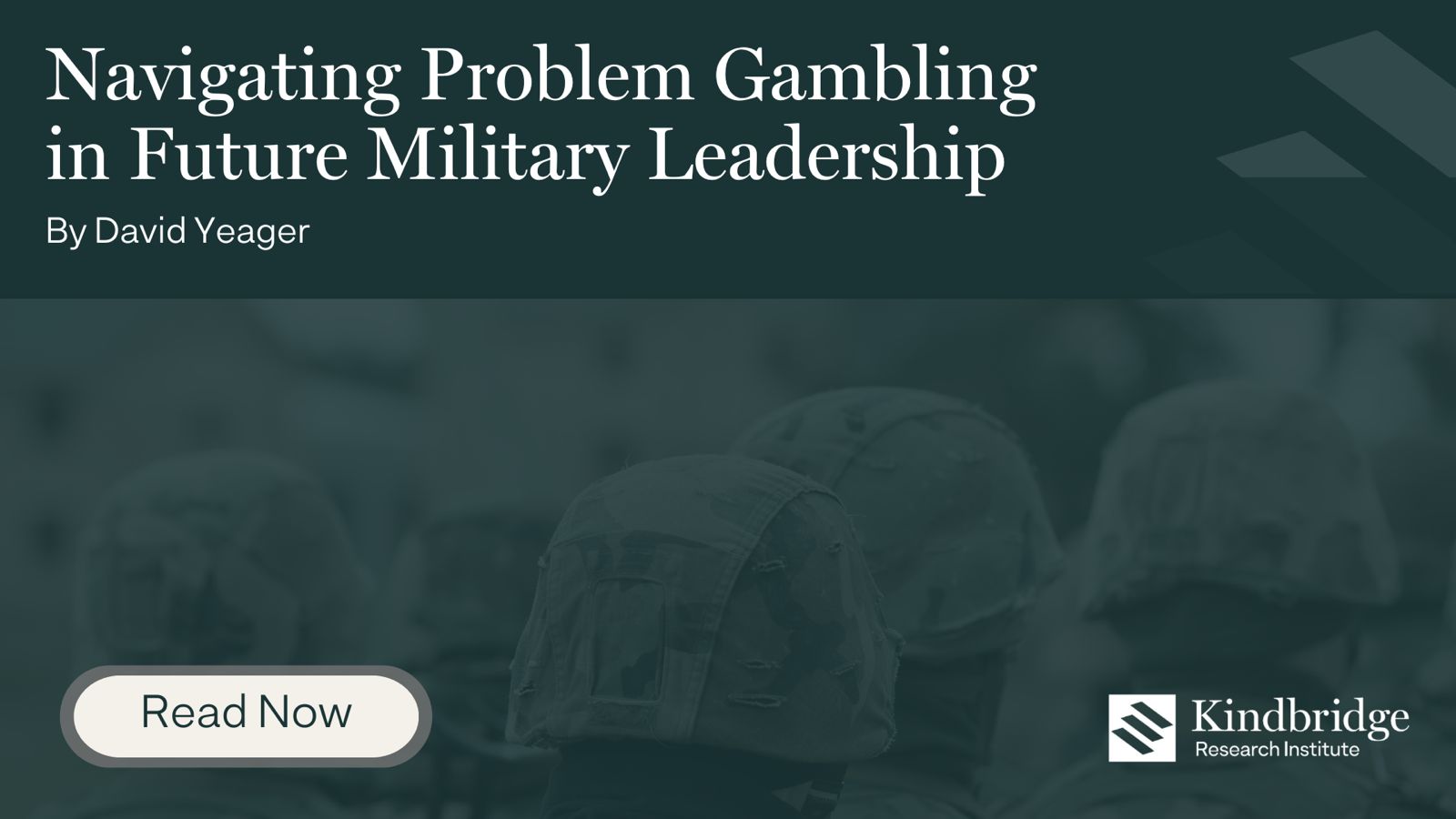In November, Brianne Doura-Schawohl and I had the honor of training over 100 ROTC cadets at the University of Colorado on the risks of problem gambling. This initiative was part of Kindbridge Research Institute’s collaborative work the Colorado Department of Gaming Enforcement (DGE). I have done training for clinicians, advocates, and others in the field of problem gambling, but never for a group of future military leaders. This IS the audience. These are the people we want to reach.
Insufficient knowledge exists about the dangers of disordered gambling in the military community. It’s not surprising to hear a military leader say, “We don’t have that problem,” yet when we start talking about exactly what “that problem” looks like, it’s not unusual for that same leader to say “oh yeah, I have seen that.” Being able to provide training on what gambling is, why it can become an addiction, what that addiction looks like, and what to do as a leader is critical to reducing stigma and aiding struggling service members to get help.
Presenting to a group of ROTC cadets, their teachers and leaders, opened quite a few eyes. The feedback and questions were engaging, and the role play exercise got more than a few students using the word “uncomfortable” when it came to talking about this subject. It is uncomfortable, and quite necessary to help our service members realize there is help available.
The message is clear: gamble responsibly. If the gambling turns into more than fun, recognize that this can be a serious addiction and that help is available. What better audience than young, up-and-coming leaders to deliver this message to, as they go into their careers as officers armed with this knowledge.
As a military veteran in recovery for a gambling addiction, I can remember thinking that no one really understood what was going on with me when I was suffering while on active duty. I appreciate the pioneering work Kindbridge Research Institute and Kindbridge Behavioral Health are doing in this area to help break barriers and make help more readily available for the “next me.”


